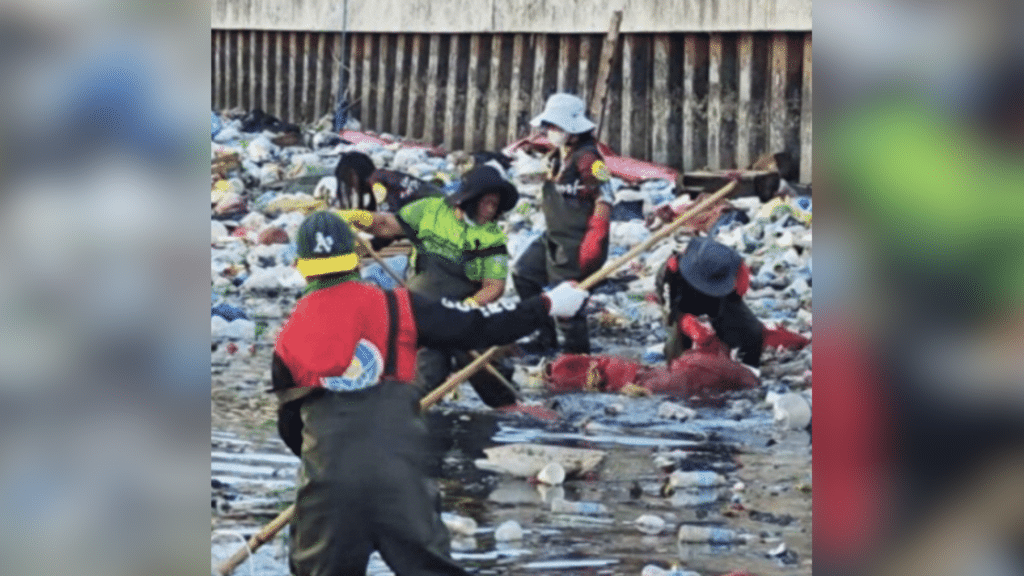
Cebu City personnel clean up one of the rivers of the city in this April 2024 photo. | File Photo [Cebu City News and Information]
Fecal coliform levels measure the amount of bacteria in water that come from human or animal waste.
The CCENRO said that all rivers have reached a critical level of contamination, with fecal coliform counts surging to 13 million most probable number per 100 milliliters (MPN/100 mL), far exceeding the safe limit of 400 MPN/100 mL.
READ MORE:
Rivers in Cebu City dirty, unsafe but hope remains — CCENRO, EMB
EMB-7: Two Cebu City rivers considered as ‘dead’
Can we ever rehabilitate the Pasig River?
According to the report, the significant contributor to this pollution is the waste discharged by settlers living along the three-meter easement of these rivers.
Many of these settlers lack proper sanitation facilities, leading to the direct release of untreated human waste into the rivers.
With this, City Councilor Rey Gealon is calling for urgent measures, including requiring settlers near rivers to install septic tanks, to address this environmental crisis.
He proposed a resolution urging the Cebu Environmental Sanitation and Enforcement Team (CESET), in coordination with the Office of the Building Official, to enforce the construction of septic tanks for residents whose homes are near the rivers.
“[Constructing septic tanks] is essential to promptly address this issue to avoid any potential environmental damage and health hazards to the surrounding community,” Gealon stated.
The councilor also added that constructing septic tanks is seen as a necessary step to comply with Republic Act No. 9275, also known as the Philippine Clean Water Act of 2004, and the Building Code of the Philippines.
The resolution further emphasizes the urgent need for action to prevent further degradation of the city’s rivers and the potential health risks to the surrounding communities.